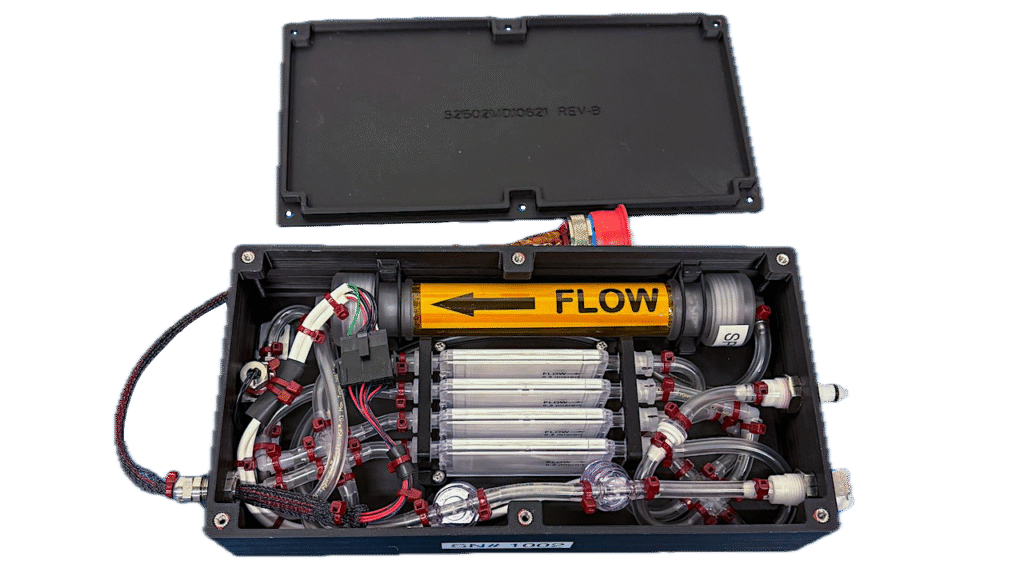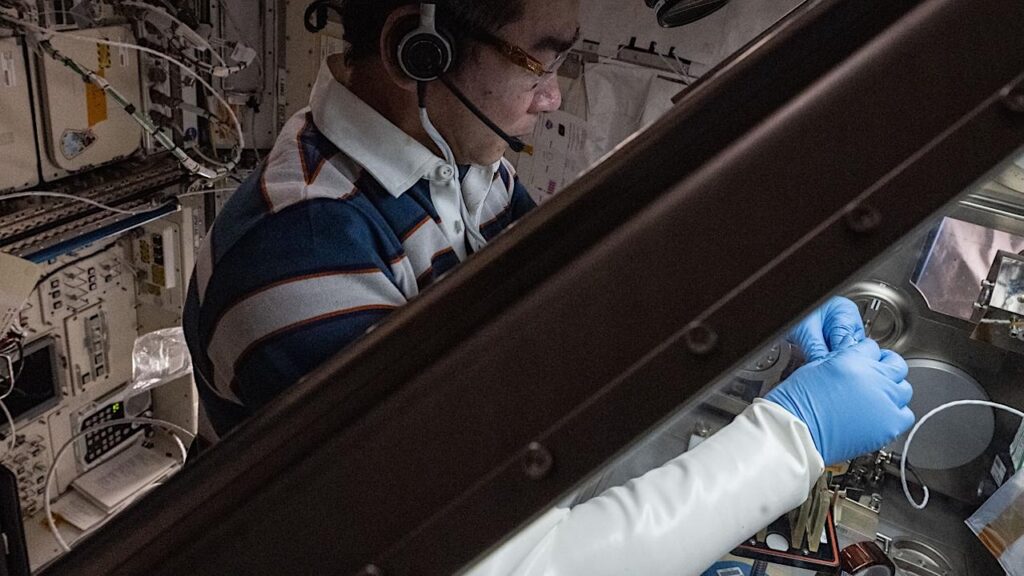Growing Food On Mars: Alfalfa Can Fertilize Soil And Cyanobacteria Can Desalinate Salt Water

Growth of radish plants in alfalfa treated basaltic regolith simulant soil using fresh water (left), unfiltered (middle) or filtered (right) biodesalinated water. CREDIT Kasiviswanathan et al., 2022, PLOS ONE, CC-BY 4.0
A fundamental challenge in human missions to Mars is producing consumable foods efficiently with the in situ resources such as soil, water, nutrients and solar radiation available on Mars.
The low nutrient content of martian soil and high salinity of water render them unfit for direct use for propagating food crops on Mars. It is therefore essential to develop strategies to enhance nutrient content in Mars soil and to desalinate briny water for long-term missions on Mars. We report simple and efficient strategies for treating basaltic regolith simulant soil and briny water simulant for suitable resources for growing plants.
We show that alfalfa plants grow well in a nutrient-limited basaltic regolith simulant soil and that the alfalfa biomass can be used as a biofertilizer to sustain growth and production of turnip, radish and lettuce in the basaltic regolith simulant soil.
Moreover, we show that marine cyanobacterium Synechococcus sp. PCC 7002 effectively desalinates the briny water simulant, and that desalination can be further enhanced by filtration through basalt-type volcanic rocks. Our findings indicate that it is possible to grow food crops with alfalfa treated basaltic regolith martian soil as a substratum watered with biodesalinated water.
Astrobiology,








